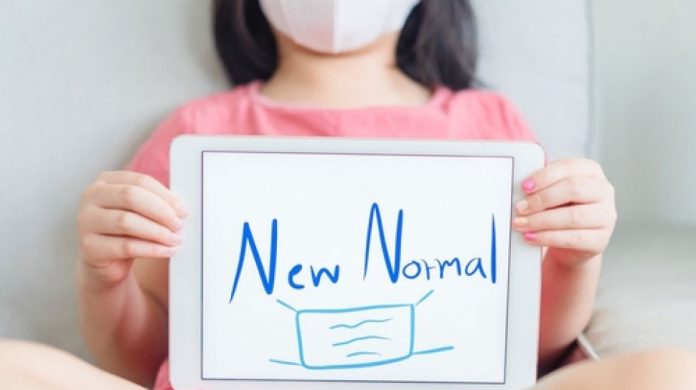This article will be updated as per the changing situation:
A phased reopening under the so-called #new normal health protocols is in the plans from early June, after having been closed since April due to large-scale social restrictions (PSBB). Guidelines for workplace have also been issued by the Health Ministry, read here>>
The ministerial decree requires company management to create task forces to curb the spread of the disease. They should also ensure cleanliness and hygiene at the workplace and increase the number of hand-washing facilities.
Employees are required to maintain a safe physical distance at the workplace and wear masks. Their temperatures should also be checked daily. Companies are also advised to set aside a time for employees to exercise together – while adhering to physical distancing guidelines – before work starts.
“By implementing these guidelines, we hope to minimize the risk of COVID-19 transmission at the workplace,” Terawan said.
This is also called the ‘new normal’, where people will go on living their daily lives while being careful of the coronavirus. It is planned that economic activities will resume in several steps. These steps and phases will be adjusted according to the situation and are not certain.
Phases of Economic Activity
Jakarta Governor Anies Baswedan on Thursday ( 4/6) said that the extension or large social distancing measures is a transitional period with the time line below.
PHASE ONE ( 5-7 JUNE)
1. Religious activites allowed with maximum 50 percent space can be used.
2. Religious building can be used for gathering maximum 25 person.
3. Social and Cultural Activities allowed. Out door and indoor sport allow only 50 percent space can be used.
4. Public and Private vehicle allow to operate with 50 percent of it’s seat capacities
PHASE TWO ( 8-14 JUNE)
1.All Offices open with maximum 50 percent employee work.
2. All shops, restaurants, small medium entreprises, industries and trade center open with maximum 50 percent visitor allow to enter the premises.
3. Mall and shopping center open on 14 and 15 June with maximum 50 percent visitor allow to enter the premises.
4. Online motorbike taxi : Gojek and Grabbike allow to carry passenger.
PHASE THREE ( 15-21 JUNE)
1.Library and gallery, museum open with 50 percent capasities.
2. Public parks, Zoo and beaches open with maximum 50.percent on 20 or 21 June.
PHASE FOUR ( 22- 28 JUNE)
Evaluation period toward New Normal.
Conditions For Workplaces
- The company is required to form a Covid-19 Handling Team in the workplace consisting of the employer, staffing section, K3 section and Health workers who are strengthened by a decree from the employer of the workplace.
- The leadership or employer provides policies and procedures for workers to report every case of suspected Covid-19 (symptoms of fever or cough / runny nose / throat pain / shortness of breath) to be monitored by health workers.
- Do not treat positive cases as a stigma.
- Work from home arrangements by determining essential workers who need to keep working / come to work and workers who can do work from home.
- At the entrance of the workplace take a temperature measurement using a thermogun, and before entering work apply Covid-19 Risk Self Assessment to ensure workers who will come to work in a condition not infected by Covid-19.
- Setting working time is not too long (overtime) which will result in workers lack of time to rest which can cause a decrease in the immune system / immune system.
- If possible, avoid shift 3 (work time which starts at night until morning). For shift 3 workers arrange for those who work, especially workers aged less than 50 years.
- Require workers to wear masks since traveling to / from home, and while at work.
- Regulate the nutritional intake of food provided by the workplace, select fruits that contain lots of vitamin C such as oranges, guava, and so on to help maintain endurance. If possible workers can be given vitamin C supplements.
- Ensure that all work areas are clean and hygienic by periodic cleaning using appropriate cleaners and disinfectants (every 4 hours). Especially door handles and stairs, elevator buttons, shared office equipment, areas and other public facilities.
- Maintain workplace air quality by optimizing air circulation and sunlight entering the workspace, cleaning air-conditioning filters.
- Provide a hand sanitizer with a minimum alcohol concentration of 70 percent in places that are needed (such as entrances, meeting rooms, elevator doors, etc.).
- Providing hand washing facilities (soap and running water). Then provide instructions for the location of hand washing facilities. Also, put up educational posters on how to wash hands properly.
- Physical distancing in all work activities. Arrangement of inter-worker distance of at least 1 meter in each work activity (work desk / workstation arrangement, seat arrangement when in the canteen, etc.).
- Campaigning the Healthy Living Community Movement (Germas) through Healthy Lifestyle and Clean and Healthy Lifestyle (PHBS) in the workplace such as balanced food and regular exercise.
- Washing Hands With Soap (CTPS) Encouraging workers to wash their hands when arriving at work, before eating, after contact with customers / meeting with others, after from the bathroom, after handling objects that might be contaminated.
- Avoid using personal tools together such as prayer tools, cutlery, and others.




